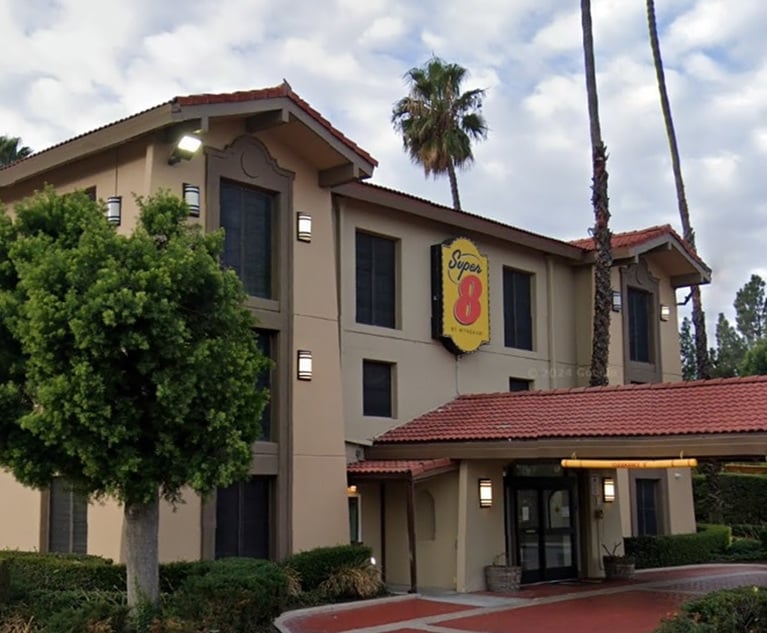Criminal Charges Against NJ Solar Energy Company Reinstated
In a published ruling, State v. Bernarndi, the three-judge Appellate Division panel said three of the six counts against the company, Strategic Environmental Partners, and its director and managing member, Richard Bernardi Sr., were wrongly dismissed based on the mistaken reasoning that an administrative consent order didn't amount to a government contract.
August 28, 2018 at 03:29 PM
4 minute read
 Photo: Fotolia
Photo: Fotolia
A New Jersey appeals court on Tuesday reinstated criminal charges against a solar energy development company and its director accused of violating an administrative consent order meant to assist in building a solar farm on the site of an old landfill.
In a published ruling, State v. Bernarndi, the three-judge Appellate Division panel said three of the six counts against the company, Strategic Environmental Partners, and its director and managing member, Richard Bernardi Sr., were wrongly dismissed based on the mistaken reasoning that an administrative consent order didn't amount to a government contract.
The matter began in 2006, when Strategic Environmental Partners began discussing with the state Department of Environmental Protection about a plan to install solar panels on a Roxbury property it bought in 2011 from a company called Sussex and Warren Holding Corp.
According to the court, the property contained a landfill, the Fenimore Landfill, that had been closed for 30 years. The entire site was contaminated and in need of remediation. During the negotiations, the DEP had expressed doubts about the company's ability to finance the project, especially since the company was unable to obtain a performance bond, the decision said.
Instead, Strategic Environmental Partners proposed using tipping fees at the site, to be paid by a developer, plus expected revenues from its solar panel project, to pay $2.3 million into an escrow account. The DEP agreed, and the agency and the company entered into an administrative consent order.
According to the decision, Strategic Environmental Partners ultimately paid only $250 into the escrow account. It disclosed that it owed Sussex-Warren $950,000 on a mortgage lien. Additionally, the DEP learned that $1.5 million had been paid to Bernardi and his family in 2013 and 2014, the court noted.
The matter was referred to a state grand jury, which returned a six-count indictment. There were five charges against both Strategic Environmental Partners and Bernardi: second-degree false representations for a government contract; second-degree theft by deception, in connection with their dealings with the DEP; another second-degree theft by deception charge, for their dealings with Sussex-Warren; first-degree financial facility of criminal activity; and second-degree theft of services. The sixth count was against Bernardi only—a second-degree charge of misconduct by a corporate officer.
The first four counts of the indictment were dismissed in Morris County Superior Court because, the judge said, an administrative consent order didn't amount to a contract between a private company and a government agency, and there was no evidence to indicate that Strategic Environmental Partners had failed to live up to any contractual agreement to provide goods or services.
But the Appellate Division reinstated three counts of the indictment—second-degree false representation for a government contract, the theft-by-deception charge related to the DEP, and the first-degree financial facilitation of criminal activity charge—ruling that an administrative consent order carries the weight of a government contract.
“A contract has long been interpreted as 'an agreement between two or more parties creating obligations that are enforceable or otherwise recognizable at law' and a 'writing that sets forth such an agreement,'” wrote Appellate Division Judge Francis Vernoia for the appeals court, quoting Black's Law Dictionary. Judges Carmen Messano and Amy O'Connor joined in the ruling.
“The ACO is an agreement between defendants and the NJDEP which, by its express terms, may be enforced by the parties,” Vernoia said.
“The ACO is no different than a consent order in that it incorporates the contractual agreement of the parties and also constitutes an order … requiring compliance with its terms,” Vernoia said.
The panel agreed, however, that count four was rightly dismissed because there was no evidence that the company was attempting to defraud Sussex-Warren in its mortgage, which the court said was more akin to a lien on the property.
The Attorney General's Office, which represented the DEP, did not respond to a request for comment.
John Azzarello of Whipple Azzarello in Morristown represented both Strategic Environmental Partners and Bernardi. He could not be reached.
This content has been archived. It is available through our partners, LexisNexis® and Bloomberg Law.
To view this content, please continue to their sites.
Not a Lexis Subscriber?
Subscribe Now
Not a Bloomberg Law Subscriber?
Subscribe Now
NOT FOR REPRINT
© 2025 ALM Global, LLC, All Rights Reserved. Request academic re-use from www.copyright.com. All other uses, submit a request to [email protected]. For more information visit Asset & Logo Licensing.
You Might Like
View All

Trending Stories
- 1Troutman Pepper, Claiming Ex-Associate's Firing Was Performance Related, Seeks Summary Judgment in Discrimination Suit
- 2Law Firm Fails to Get Punitive Damages From Ex-Client
- 3Over 700 Residents Near 2023 Derailment Sue Norfolk for More Damages
- 4Decision of the Day: Judge Sanctions Attorney for 'Frivolously' Claiming All Nine Personal Injury Categories in Motor Vehicle Case
- 5Second Judge Blocks Trump Federal Funding Freeze
Who Got The Work
J. Brugh Lower of Gibbons has entered an appearance for industrial equipment supplier Devco Corporation in a pending trademark infringement lawsuit. The suit, accusing the defendant of selling knock-off Graco products, was filed Dec. 18 in New Jersey District Court by Rivkin Radler on behalf of Graco Inc. and Graco Minnesota. The case, assigned to U.S. District Judge Zahid N. Quraishi, is 3:24-cv-11294, Graco Inc. et al v. Devco Corporation.
Who Got The Work
Rebecca Maller-Stein and Kent A. Yalowitz of Arnold & Porter Kaye Scholer have entered their appearances for Hanaco Venture Capital and its executives, Lior Prosor and David Frankel, in a pending securities lawsuit. The action, filed on Dec. 24 in New York Southern District Court by Zell, Aron & Co. on behalf of Goldeneye Advisors, accuses the defendants of negligently and fraudulently managing the plaintiff's $1 million investment. The case, assigned to U.S. District Judge Vernon S. Broderick, is 1:24-cv-09918, Goldeneye Advisors, LLC v. Hanaco Venture Capital, Ltd. et al.
Who Got The Work
Attorneys from A&O Shearman has stepped in as defense counsel for Toronto-Dominion Bank and other defendants in a pending securities class action. The suit, filed Dec. 11 in New York Southern District Court by Bleichmar Fonti & Auld, accuses the defendants of concealing the bank's 'pervasive' deficiencies in regards to its compliance with the Bank Secrecy Act and the quality of its anti-money laundering controls. The case, assigned to U.S. District Judge Arun Subramanian, is 1:24-cv-09445, Gonzalez v. The Toronto-Dominion Bank et al.
Who Got The Work
Crown Castle International, a Pennsylvania company providing shared communications infrastructure, has turned to Luke D. Wolf of Gordon Rees Scully Mansukhani to fend off a pending breach-of-contract lawsuit. The court action, filed Nov. 25 in Michigan Eastern District Court by Hooper Hathaway PC on behalf of The Town Residences LLC, accuses Crown Castle of failing to transfer approximately $30,000 in utility payments from T-Mobile in breach of a roof-top lease and assignment agreement. The case, assigned to U.S. District Judge Susan K. Declercq, is 2:24-cv-13131, The Town Residences LLC v. T-Mobile US, Inc. et al.
Who Got The Work
Wilfred P. Coronato and Daniel M. Schwartz of McCarter & English have stepped in as defense counsel to Electrolux Home Products Inc. in a pending product liability lawsuit. The court action, filed Nov. 26 in New York Eastern District Court by Poulos Lopiccolo PC and Nagel Rice LLP on behalf of David Stern, alleges that the defendant's refrigerators’ drawers and shelving repeatedly break and fall apart within months after purchase. The case, assigned to U.S. District Judge Joan M. Azrack, is 2:24-cv-08204, Stern v. Electrolux Home Products, Inc.
Featured Firms
Law Offices of Gary Martin Hays & Associates, P.C.
(470) 294-1674
Law Offices of Mark E. Salomone
(857) 444-6468
Smith & Hassler
(713) 739-1250








